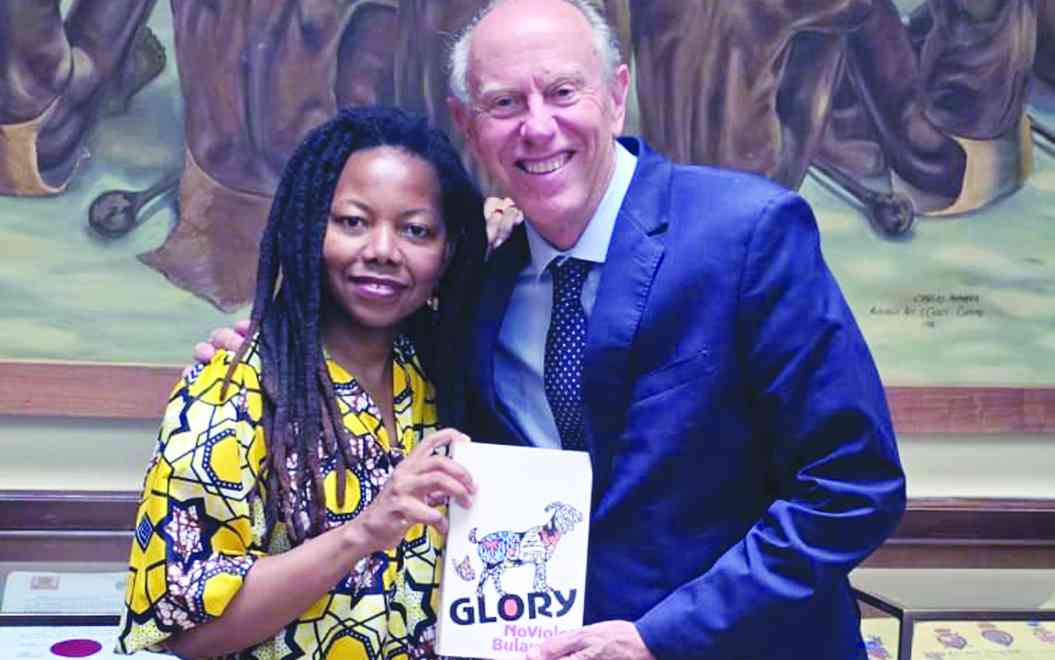
The British colonisation of Zimbabwe led to the unjust seizure of land from indigenous communities. The implementation of land policies such as the Land Apportionment Act of 1930 resulted in the displacement of local populations and the concentration of fertile land in the hands of a minority of white settlers.
The fight against colonial rule was driven by the desire to reclaim ancestral lands and restore land ownership and control to the indigenous people.
The victory was celebrated with the shared understanding that the land belongs to the people, with the phrase “tiri vana vevhu”, meaning “children of the soil”, and “ivhu nderedu” meaning “the land is ours” being sung across the country.
The communal land system in Zimbabwe, which was established during the colonial era, is still in place today and has been a subject of controversy and debate. The plan was intended to promote fair land distribution and support rural communities, but it often fails to benefit the villagers it is designed to serve.
The communal land rights are vested in the President, including the mining rights.
According to the Mines and Minerals Act, mining rights supersede land rights. This is a significant problem, as it leads to the displacement of communities. This article aims to explore the challenges faced by rural villagers under the communal land system in Zimbabwe, highlighting issues of tenure insecurity, limited access to resources, and barriers to economic development.
Communal lands, which are often home to rural villages, are facing significant challenges due to the activities of mining companies. These villages, characterized by their close-knit communities and reliance on traditional livelihoods, find themselves in a vulnerable position as they grapple with the detrimental effects of mining.
Even the dead are not being spared as thousands of graves have been dug up to pave way for mining — thereby opening fresh wounds and causing trauma to affected families who have to grieve again as they rebury the remains of their loved ones for the second time. There is a real possibility some will be exhumed a second time if minerals are discovered!
- Two jailed for trying to smuggle lithium ore to SA
- Artisanal miners deserve better
- Powerful political and security interests manipulate mining law
- Mines Bill tabled before Parly
Keep Reading
‘Ivhu harisi redu’
The Rural District Council governs communal land in Zimbabwe. According to the Communal Land Act Chapter 20:04, the council grants people the right to occupy and use the land in consultation with the traditional leaders of the area.
The right to occupy and use the land is given in line with customs and traditions of the inhabitants of the area concerned. Although the President of Zimbabwe has the authority over all communal land, it has no owner in the strict sense. The President grants permission for its occupation and use under the Communal Land Act.
The Mines and Minerals Act
According to section 26 of the Act, licensed prospectors have the right to search for minerals and peg claims on Communal Land. However, they cannot prospect near homesteads, buildings, or cultivated land. They can take water and firewood and are also allowed to erect tents and other temporary accommodation for themselves and their employees under sections 29, 30, and 31.
Before exercising their rights, they must give notice to the local rural district council, although they are not required to inform the occupants of the land or their chief under section 38.
Individuals who hold mining licenses on Communal Land have the right to extract minerals from their locations. They can also access water sources, cut down trees, and construct buildings to facilitate their mining activities (as outlined in sections 36, 178, and 234). The residents of the Communal Land are permitted to cultivate crops and graze their livestock on the location if they do not disrupt the mining operations (as stipulated in section 179).
Miners must pay a royalty to the Government for the minerals extracted from their locations, as detailed in Part XIV of the Act. The royalty payment is made to Zimra and is deposited into the Consolidated Revenue Fund, like other taxes. The Act does not provide for any payments to be made to the inhabitants of the Communal Land from which the minerals are taken.
However, under Part XV of the Act, the Minister of Mines is authorised to instruct miners to make payments to local authorities, such as rural district councils and urban councils, located near their mining locations. Typically, land occupiers do not receive compensation for mining unless it occurs on cultivated land or near buildings.
Legislative policy on compensating
There is no specific provisions and policy that deals with compensating communities displaced by mining operations. Instead, compensation for these communities is regulated under the property law rights and under compensation frameworks that is designed to compensate landholders whose rights are negatively injured by mining operations.
Fair and adequate compensation
The Constitution of Zimbabwe protects every person from being forced to give up their property without fair and adequate compensation.
The compensation must be paid before or within a reasonable time after acquiring the property.
The Constitution does not specify what is considered fair and proper compensation.
However, it is generally accepted that the market value of the property is fair and adequate compensation.
This means that the compensation should be the price a willing buyer would pay to a willing seller for the property or the best price that can be obtained on the open market.
The same Constitution gives the right for the affected person to apply to the competent court the value of the property concerned or the determination of the amount of compensation or for an order of prompt payment of any prize.
As shall be indicated below, Part XXII of the Mines and Minerals Act [Chapter 21:05] does provide for the acquisition of land by Mining companies and the State for mining operations. It follows that the rights conferred under section 71 accrue to the affected individuals.
Compensation under Minerals Act
Section 80 Compensation of the Act provides as follows: Any owner or occupier of reserved ground who is injuriously affected by the exercise of any rights under an authority or order granted under this Part or by any mining operation on any mining location registered under such order shall be entitled to recover compensation from the person to whom the authority was granted or in whose favour the order was made or the holder of the mining location, as the case may be, in such amount as may be agreed upon or, failing such agreement, as shall be determined by the Administrative Court.
According to the Mines and Minerals Act, if a mining company affects the land rights of an owner or occupier of reserved ground, they are obligated to provide monetary compensation. The amount is not specified in the Act, but both parties must agree upon it.
If there is a disagreement, the matter will be settled by the Administrative Court. This type of compensation is designed to benefit landholders who have been impacted by mining operations but have not been displaced.
The payment is calculated based on the proven losses and cannot exceed the market value of the properties affected by mining operations. The compensation framework in place has several flaws. Firstly, the Act assumes that vulnerable local communities can negotiate fair compensation settlements with large mining corporations.
However, these communities often lack the necessary knowledge and expertise to negotiate better deals and are unaware of the legal proceedings they could take at the Administrative Court. Additionally, they do not have the resources to fight legal battles with large corporations, which governments and political elites often back.
Secondly, mining operations typically affect many families, entire villages, or communities, and mining companies use their influence and bribes to silence critical voices representing the affected communities.
Mutowekuziva is a registered legal practitioner. These weekly New Horizon articles, published in the Zimbabwe Independent, are co-ordinated by Lovemore Kadenge, an independent consultant, managing consultant of Zawale Consultants (Pvt) Ltd, past president of the Zimbabwe Economics Society and past president of the Chartered Governance & Accountancy Institute in Zimbabwe (CGI Zimbabwe). — [email protected] or +263 772 382 852.











